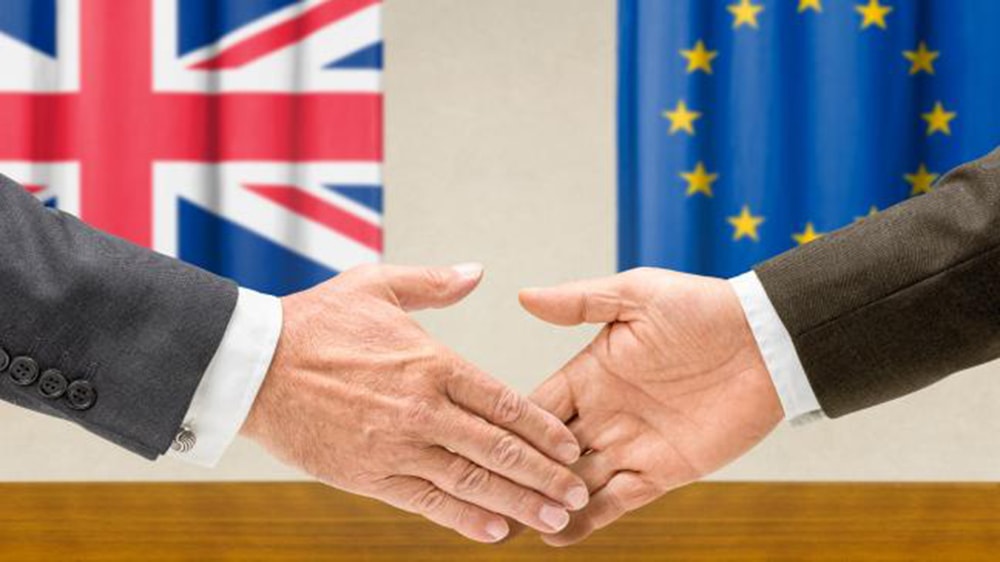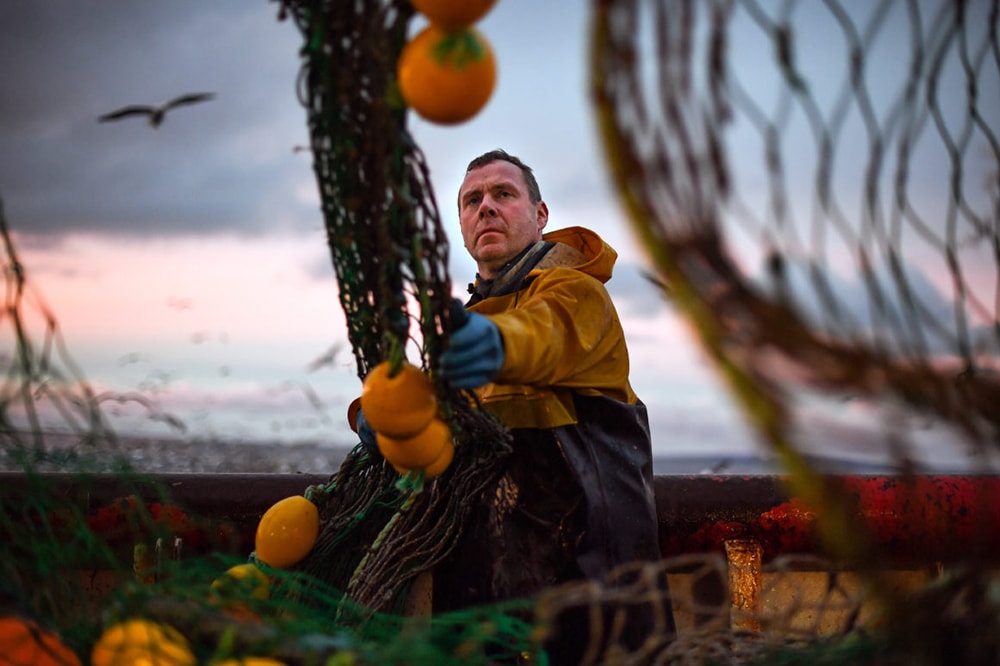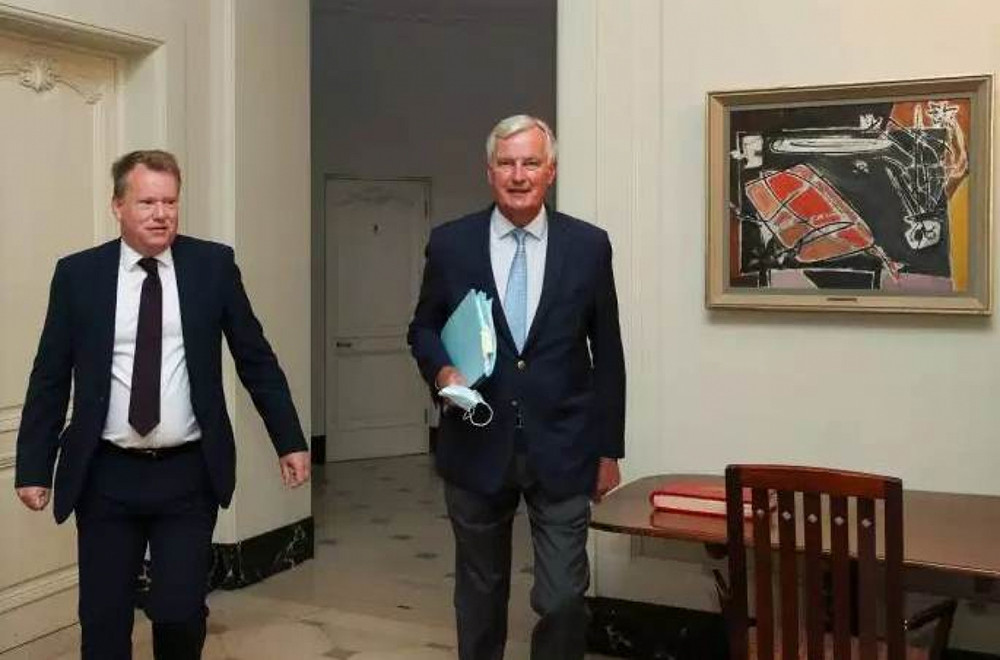Obstacles sinking UK-EU deal
(Baonghean.vn) - The UK and the European Union (EU) entered the 8th round of negotiations from September 8-11 on a post-Brexit trade agreement, aiming to achieve some breakthroughs on the remaining issues. Fears of a “no deal” are increasingly falling into crisis, as the EU accuses the UK of trying to adjust the terms. Serious disagreements on fishing and a level playing field for trade are the two biggest obstacles that could sink any hope of an agreement.
History cannot repeat itself.
Fishing rights have always been the biggest obstacle to a post-Brexit deal between the UK and the EU. Fifty years ago, when the UK entered negotiations to join the European community, before the G-hour, the UK received an unexpected surprise: 6 membersEuropean Commission(EC) has agreed to quickly have a common fisheries policy (CFP).
Half a century later, the 100 fish shared by the UK and EU waters are once again the subject of heated debate. British negotiators are keen to avoid a repeat of political and geographical history in this latest round of negotiations. “The fisheries question is about economic interests, but it is also about political motivation,” said O’Neill, the UK’s chief negotiator for accession in 1972.
 |
| The trade deal between the UK and the European Union has hit many deadlocks that are difficult to resolve. Photo: Global Business |
Observers have described the EU and UK positions as “maximalist”. With at least eight EU member states involved in the fisheries sector, the EU’s position is “no concessions allowed”, demanding that the UK accept the status quo, meaning that European vessels continue to fish in UK waters, and, within 200 nautical miles of the UK’s exclusive economic zone, British vessels are allowed to catch more than 58% of the fish and seafood in EU waters. Meanwhile, on August 7, the UK announced that it wants to double its catch.
The most contentious point in the framework agreement with the EU on fisheries is the method of calculating how the total annual allowable catch (TAC) is shared between the parties. The UK wants to base the calculation on “regional binding”, meaning it wants to get more than the current rules maintained by the EU.
There will be no trade deal without “fair and sustainable” fishing.
EUEU chief negotiator Michel Barnier has said a deal on fisheries is a prerequisite for any comprehensive trade deal with the UK. Ahead of the new round of talks, the EU’s chief negotiator Michel Barnier expressed frustration, even accusing the UK government of using fishermen as “bargaining chips”, and pledged that there would be no trade deal without “fair and sustainable” fishing.
However, the UK has not shown any sign of backing down, arguing that the EU's fishing demands are inconsistent with its sovereignty. For the UK, although fishing accounts for less than 1% of the economy, it has great symbolic significance.Brexit. Because regaining control of the seas, rotational access to manage fisheries is an important goal for Britain. And above all, Britain will become an independent coastal state.
 |
| Fisheries are the biggest barrier to a trade deal between the UK and the EU. Photo: Potico |
Serious difference
The EU view is that if the UK wants market access for both goods and services, it must align its laws with those of the EU and accept a level playing field. But of course the UK does not want those views imposed on it.
Politically, accepting the imposition of EU rules would go against the promises and policies of Brexit supporters. They want the social elite in London, not Brussels, to determine the rules of the game in Britain. In addition, economic experts recognize that Britain's "divorce" from the EU has made EU laws less friendly to financial institutions and technology companies.
Britain did not compromise on fundamental terms because the UK is now an independent sovereign state, independent of the EU.
Going into the new round of negotiations, both sides have outlined starkly contrasting positions. One EU has said there can be no trade deal unless the UK agrees to a “level playing field” commitment and does not undercut EU regulations. Meanwhile, British officials have, in recent days, highlighted their stance that divergences from EU rules and standards are the essence of Brexit, and have no fear of a “no-deal Brexit”. In an ultimatum to the EU on September 7,Prime Minister Boris Johnsonstressed that the two sides need to reach an agreement before October 15, and affirmed that the UK will not compromise on basic terms because the UK is now an independent sovereign country, independent of the EU.
European diplomats say Britain is playing catch-up, threatening to collapse the process and challenging Brussels to compromise first. Others say Johnson is using “no deal” to distract attention from the crisis caused by the Covid-19 pandemic. In response to these developments, EU chief negotiator Michel Barnier said he was genuinely worried about what was coming and called on the UK to simply implement the political commitments it had made.
 |
| The two chief negotiators of the UK and the European Union. Photo: Reuters |
Failure to reach a deal would exacerbate the trade dispute between the UK and the EU. This would affect not only the UK economy itself, with about $900 billion in annual trade between the UK and the EU likely to be disrupted, but also that of continental neighbors like Ireland. Irish Foreign Minister Simon Coveney said: “Is this a political game or are there really new terms that will be set this week? We will have to wait and see.”
The red lines on both sides have raised concerns that no deal can be reached in this round of talks. Both sides have big political objectives. Britain wants to ensure that European ties do not compromise its new independence, while the EU needs to show that life inside the bloc is better than outside. British Foreign Secretary Dominic Raab said: “I hope the EU will understand that this week is the time to wrap things up. There has to be a deal and the UK just needs to be treated like any other third country negotiating a free trade agreement.”
Many positive opinions believe that if there is a breakthrough in the remaining deadlocked issues, the trade negotiations will be “smooth sailing”. But it is necessary to understand that all the key and most tense areas must be negotiated before ratification can take place. Fisheries or competition conditions are just figurative expressions, symbolizing that there are no important knots “hanging” for further negotiations.

